PUFA-free and low sugar, but still not losing weight? Consider empty calories.
When we hear the words “empty calories” most people think of sugar. For the vast majority of us, sugar does act indeed like an empty calorie and, because of this, it typically winds up being stored in the body as fat. Worse than sugar are PUFA-laden seed oils, because these build up in our body fat where they promote inflammation, prediabetes and multiple metabolic diseases. [For more on the role of PUFA-rich seed oils and weight gain, see The FATBURN FIX]
But did you know that even nutrient-dense foods can, when consumed in excess, act like empty calories much like sugar, and will likely be converted to more unwanted body fat?
This means that even if you eat plenty of nutrient dense foods like meats and dairy you may, if you are eating the same things over and over, be forcing your body to convert many of those repeated nutrients into fat.
This article is continued below...(scroll down)
It helped. I feel great.
"It’s helped. I feel great."
Kobe Bryant
NBA baskeball player
This has been life changing
"Let me tell you this has been life-changing. I have all of her books, in audible and ebooks! I have gotten rid of all the hateful 8 oils. I have trained my body to eat its own previously toxic body fat. Download that pod it's a game changer!"
Megyn Kelly
Life changing
Deep Nutrition changed my life.
Jesse Watters
Fox News Primetime host
Saved my life
I would like to thank you for literally saving my life. Back in February, I had to be hospitalized while on vacation in Phoenix with an A1C of 11% and had to start taking 2 types of insulin and 2 other meds. I read the Fatburn Fix in April, and followed the program to a tee, and I’m down by 15 pounds, 6.8 A1C, and only one once weekly diabetes medicine. Prior to reading the book, it was almost impossible for me to lose weight as a diabetic.
Leontyne Tompkins
I feel free
For the last month, I have really been reading all labels on everything. I have completely remove those 8 oils you talk about. I must tell you, I feel great! I have more energy and I am now 197 lbs (have always been around 205 to 210lbs). I eat potatoes with real butter, grass fed steak, pasta with the right toppings. I eat everything! I seem to crave less sugar. I love it!
Robert Kirkendall
I feel so much better
I had terrible aches and pains everywhere in my body, my hands, shoulders and knees. I feel so much better and the way I feel is motivating me every day! Thank you
Mike Deb Wootan Burcin
Better than ever
I am an anesthesiologist in Orlando and a huge fan of both of your books! I have been incorporating your principles for the last 10 months and feel that my health is better than ever.
Marnie Robinson, MD
My allergies disappeared
The biggest difference for me (and a surprising one) is that my allergies have almost completely disappeared! This is a big deal for me, because I’ve had allergies most of my life and they have often affected what I do which is a teaching music in [a public school district]. In general, I feel much better and have more consistent energy throughout the day.
Erica Turrell
Heart Palpitations have Stopped
I’ve lost 20+ pounds (also fasting 16-24 hours daily) and haven’t had palpitations except for one occasion — I had a mini bag of Fritos for the first time in July. And, I feel better now on a daily basis than I ever did all through college.
Mike Wright
Deep Nutrition and Fatburn Fix reader
I’ve lost over 50 pounds
I’ve lost over 50 pounds. I’m 56 years old. Cutting processed food and unhealthy fats from my diet was one of the first things I did on my health recovery journey...I went cold turkey off the bad oils. Emptied my pantry into the trash and just started eating real food
Mitzi Wilkinson Champion
Knowledge I didn’t know I needed
Your Fatburn Fix book is amazing, my friend. Thank you! I’m an Functional Nutritional Therapy Practitioner and I know my stuff. This is the extra layer of knowledge I didn’t know I needed. Well done!
Jennifer Dillman
Fatburn Fix reader
Lost a solid 20 lbs and my bloodwork is great
I have lost a solid 20 lbs and my bloodwork (after 3 months of eating your way) was even better! I was metabolically healthy (per your book) before I read your book, but barely. Lowering my weight, sealed the deal! I have been talking about you and your book to anyone who will listen...Thank you for all you’ve done and what you continue to do! You are changing lives for the better!
Missy Cramer
FatBurn Fix reader
Lost 20 lbs I could never shed
I love your Fatburn Fix! Has helped me so so much! I have had the dreaded weight all my life - 20 or so pounds I could never shed. I have lost that now. I only eat 2 meals a day lunch and dinner with a glass of milk or cappuccino around 4 to hold me over. No snacking and not bad oils. It has been the key to unlocking my fatburn. I work out in the am and believe I am burning fat for energy not from food!
Lauren Smith
I feel great
My waist is four inches smaller. I feel great and many of the minor aches and pains that I had (knees and lower back) are gone. Also, my muscle tone is amazing, even though I have not increased my workout routine.
Richard Janelle
Completed Dr Cate's online course
The go-to for strength and conditioning coaches
Whenever I advise my clients about eating to perform I go straight to what I have learned from Dr. Cate. Her book Deep Nutrition has become the go-to for strength and conditioning coaches across the country.
Kent Matthes
Major League Baseball Agent with WME Sports
Dismantles the lie
Dr. Cate dismantles the lie that seed oils are healthy, which may the biggest lie about nutrition and health because it’s so insidious.
Ken D Berry, MD
Author of Lies My Doctor Told Me
She knows the chemistry
Dr. Cate alerts us to the harms of seed oils and she’s convincing because she knows the chemistry better than anyone.
Dr. Drew Pinskey, MD
Globally recognized internal medicine and addiction medicine specialist, media personality, LoveLine Host, and New York Times bestselling author
No one is better at communicating nutritional truth
Dr. Cate has had the single greatest impact on how we talk to people about fueling for both performance or durability. While we all are a little unique, the foundational principles of human nutrition are immutable. If you are looking to create a more durable, resilient body, no one is better at communicating nutritional truth than Dr. Cate.
Dr. Kelly Starrett
Physiotherapist coach and New York Times and Wall Street Journal bestselling author
Highly recommend The Fatburn Fix
Dr. Shanahan has had a significant impact on my practice of medicine. I am known as a Low Carb Doctor, but I never really appreciated the negative effects of processed seed oils on the health of my patients. I highly recommend The Fatburn Fix to my patients and have a loaner copy in my waiting room. It is amazing how quickly blood sugars and overall health improves with cutting seed oils. It is not just about the carbs!
Dr. Brian Lenkzes, MD
CEO of LowCarbMD San Diego, co-host of Low Carb MD Podcast and host of Life's Best Medicine Podcast
Respected in the sports world
Dr. Cate reordered my diet when I was with the L.A. Lakers, and the benefits, for me personally, were felt immediately and have served me to this day. I’ve come to take real food so seriously I started a small family farm. I know of no M.D./nutritionist more respected in the sports world than Dr. Cate Shanahan.
Chris Kaman
NBA Player
Brought seed oil issue front and center
Cate brought the seed oil issue front and center. Healthy fats matter. So much so that I created an entire product line to swap out bad fats with good.
Mark Sisson
Founding Father of the Primal/Paleo Movement
Optimal health starts with food
If you want to understand how optimal health starts with food, start with Dr. Cate. Her book Deep Nutrition leaves you with an appreciation of the profound relationship between our genes and the planet, inspiring us to be good shepherds of both.
Dallas Hartwig
Attribution author of The Whole 30
Helped me with endurance
Deep Nutrition really helped me with endurance. I started to feel better as a player. I was able to run more, I was able to be more active …and I just decided to keep going with it to this day.
Dwight Howard
NBA Player
Silver bullet for me
Dr Cate’s teachings helped me lose 60 pounds like it was nothing. It was like a silver bullet for me.
Paul Grewal, MD
Dr Grewal Internal Medicine, MD, author of Genius Foods
Radically improve your health…
Dr. Shanahan has provided a solid reference that deserves a place in the library of anyone who is seriously interested in nutrition. Her perspective on the vital role that healthy fat has in our diet is novel and, if implemented, can radically improve your health.
Dr. Joseph Mercola
Author of Fat for Fuel and Founder of Mercola.com
Pull up a chair…
I have based my work on the idea that getting the right kinds of healthy fats into your body and avoiding the worst fats is essential to optimal health. I've interviewed dozens of the world's top experts about this, and I know of no one who speaks more eloquently on this topic than Dr Cate. If she’s talking fats, pull up a chair. Take notes.
Dave Asprey
Author of the Bulletproof Diet
The key to unlocking my fatburn
I love your Fatburn Fix! Has helped me so so much! I have had the dreaded weight all my life - 20 or so pounds I could never shed. I have lost that now. I only eat 2 meals a day lunch and dinner with a glass of milk or cappuccino around 4 to hold me over. No snacking and not bad oils. It has been the key to unlocking my fatburn.
Lauren Smith
Saved my life
I would like to thank you for literally saving my life. Back in February, I had to be hospitalized while on vacation in Phoenix with an A1C of 11% and had to start taking 2 types of insulin and 2 other meds. I read the Fatburn Fix in April, and followed the program to a tee, and I’m down by 15 pounds, 6.8 A1C, and only one once weekly diabetes medicine.
Leontyne Tompkins
> Tears of joy
I'm crying tears of joy and appreciation for all you've done for me and my health! Without Deep Nutrition and Fatburn Fix, I would literally still be in the vicious cycle I'd been fighting all my life! In a nutshell - I am no longer a compulsive overeating addict suffering under the crushing 'thumb' of all food and alcohol.
Penni Wicks
Variety is the fastest, healthiest way to lose weight
What your body wants is a variety of nutrients. On a standard American diet we’re getting far too many calories in as sugar–either from starches or simple sugars–and this means that when people get away from that kind of diet by cutting their carbs and eating more protein-rich foods like meats and fish, often they do very well.
But for some, after a while the weight loss slows. This is likely to occur if someone has flooded their body with, say, certain amino acids and fats like omega-3, and now must convert any more into storage forms of fat.
And for others, energy gains enjoyed shortly after improving their diet suddenly disappear, and new problems may crop up. You are likely to run into these stumbling blocks if your new diet is missing nutrients. For example, in those who have gone grain-free and are also avoiding other seeds and nuts I commonly see digestive and skin disorders consistent with omega-6 fatty acid deficiency.
So what should you eat?
The solution is not to go back to a Standard American diet. The solution is to make sure you are getting as much variety as possible.
If you’re eating the same kinds of foods day in and day out week after week, then you’re continually filling your body’s nutrient stores with stuff it already has in abundance. Cold water fish is high in good proteins and healthy omega 3 fatty acids and other essential fatty acids. But if that’s all you eat, soon those otherwise healthy nutrients will become, in the context of your nutrient profile, relatively empty. I say “empty” not because these things aren’t healthy. I say “empty” because, since your body doesn’t presently have a need for those nutrients, they will likely be stored away in the form of unwanted fat.
Low Carb Fatigue is Often Due to Repetitive Eating
During my recent Low-Carb Poop Out Contest I collected stories from a number of people describing how they experienced real benefits by going low-carb, but then, after several months, hit a wall. Even though they’d cut out the empty calories of sugar and high carb foods, they were suddenly feeling lethargic and grumpy, and some found that their weight loss progress had plateaued.
How can this be? They wondered. I’ve traded an empty SAD diet for a nutrient-dense ketogenic diet! I’m getting plenty of protein every single day and I NEVER cheat! What’s going on here!
What’s going on is that, although the switch toward lower carb was a good one, in many cases the new diet they’ve settled into lacks nutrient variety. They’re often eating the same short list of foods repeatedly and sending their metabolisms an unwavering (and very narrow) bandwidth signal of nutritional information. It’s like tuning your dietary radio to one channel and leaving it there even though the station plays The Rolling Stones records all day long. The Rolling Stones are great, but you’ve got to hear some other stuff to keep from getting stuck in a groove.
When you feel cravings that tell you to wander off course from your new diet, sometimes it makes sense to listen to those cravings and interpret them not as a sign that you need to retreat to the safety of prior habits but rather as requests from your metabolism to jump the fence and wander into some less familiar nutritional territory where different plants and new kinds of wild game offer a panel of nutrients your body hasn’t gotten to take in for a while.
This advice even extends to the area of carbs—yes, those calories that are, for most people most of the time, “empty”—and allow yourself an occasional romp into the land of rice and potatoes.
This may seem like breach of the rules and bylaws of the low-carb community, but I’ve seen enough evidence to convince me that a strict, unwavering adherence to an unvaried diet not only fails to keep a diet interesting enough to stick to in the long term, I’ve also become convinced that, although our bodies do best when we spend most of our time in a ketogenic, fat-burning state, many of us see benefits by taking small vacations from carb-austerity diets and allowing ourselves a little more carb from time to time.
If you are not yet familiar with the Four Pillars of World Cuisine, click here to introduce yourself to the kind of variety the human body craves.
The bottom line is this: Our bodies and our metabolisms are dynamic and receptive to everything we do–and fail to do. We are engineered to respond to, and make the best use of, a constantly shifting dietary input, a nutrient stream that changes with availability and season. One of the problems with the typical SAD diet is that is lacks any of this natural variety: it’s essentially a repeat of the same basic ingredients: sugar, vegetable oils and low-quality protein. But switching to a low carb diet that still lacks variety, while better than the alternative simply by virtue of the fact that it’s a shift, if it too lacks variety then every day that you intake the same ingredients your metabolism has less relatively less use for those nutrients and is forced to store them as fat.
In my next post I will expand our discussion of variety, compare the human metabolism to the muscles of a body builder, and discuss the growing evidence for providing your metabolism with a variety of stresses–meaning there may be benefits to sometimes storing sugars as fat.
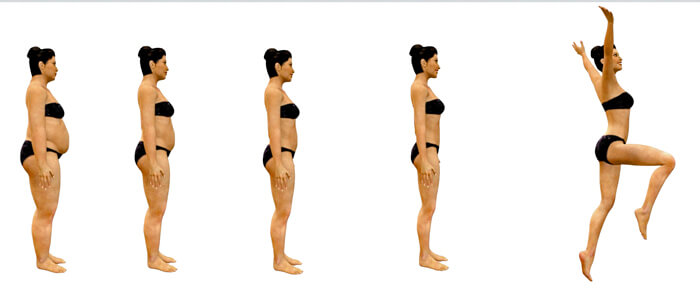



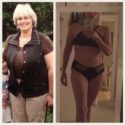



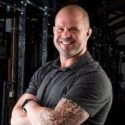








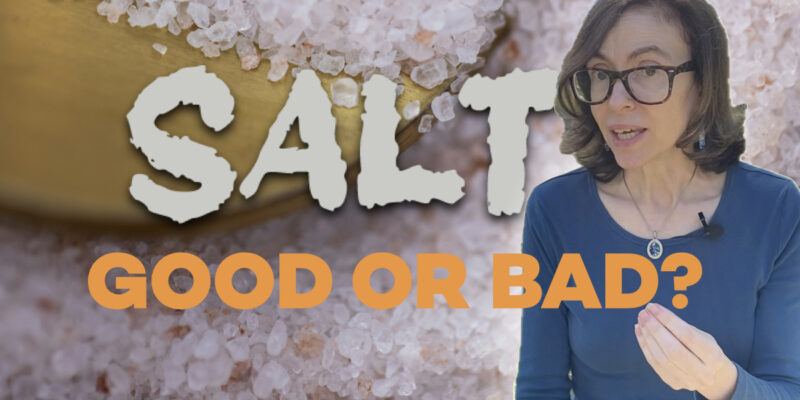
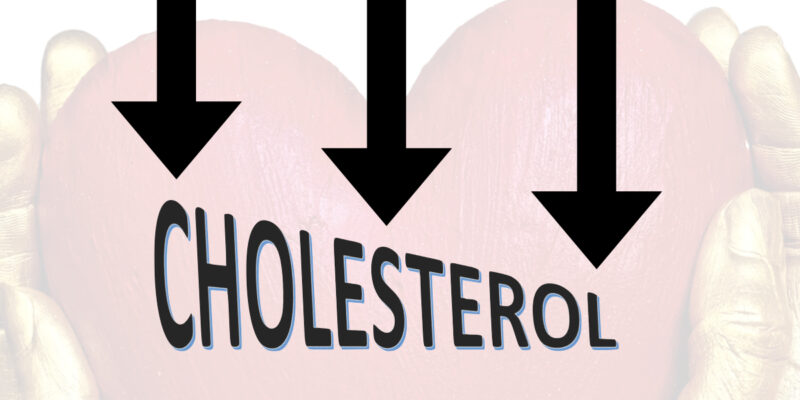
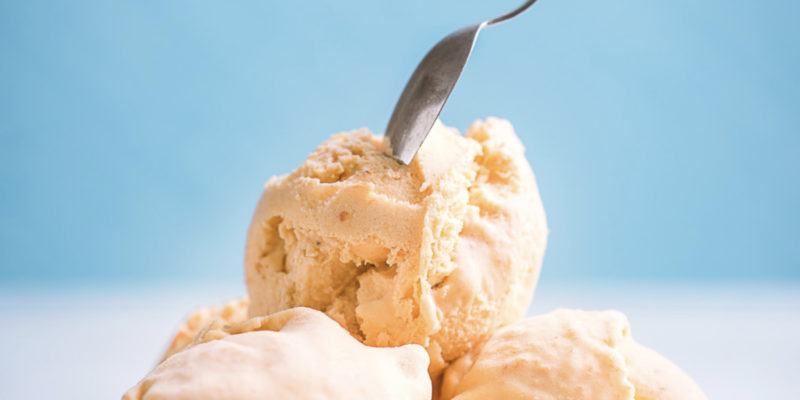
Dr Cate,
Is kefir good or bad for people? I have it with breakfast in a fresh fruit smoothie. Thanks!
Sincerely
Barry
Kefir is excellent, as long as it’s not loaded with sugar.
I’ve learned one new thing today thanks to this blog, this fact is new to me, that by eating and eating the same food our body actually convert it to fat. So even without eating sugar we may have fat by eating the same food over and over. Hmm thanks for sharing this, I better change my meal plan.
[…] prescriptive drugs should be to burn the fat deposits for losing belly fat. Eating these foods such as lentils and broccoli asparagus cauliflower zucchini tomato mung beans leeks green beans capsicum onions and other lifestyle habits […]
Dr. Cate, than you for your website.
I have M.S. and have been following Dr. Wahls’ diet for 5 months. The 1st two months were amazing; I was able to walk up stairs after only 2 months. But, the last 3 months have been bad as I have gotten worse, and need a walker constantly.. (The wahls diet is a dairy free, grain free, legume free paleo diet) I came across you on youtube, and it occurs to me that maybe I’m not getting enough variety. (I eat the same steamed veggies every day, including broccoli, cauliflower, mushrooms, onion, kale)
Your website has given me a new direction to try, as I’m sure I’m not implementing the Wahls diet correctly. I look forward to reading your books.
Good luck to you and please let me know if you find something that helps!
Robert, you might explore the GAPS diet which has helped many people with autoimmune conditions.
Dr. Cate, Thanks for your post on empty calories. I have had several people ask me why they can’t lose body fat or have gained body fat and now I have another possible cause. It’s easy to get into a pattern of eating the same thing over and over. We are all looking for ways to simplify our daily routine and one way to do this is to eat the same thing every day. In the future I will ask my clients that are complaining that they can’t lose body fat if they are eating a variety of foods for better balanced nutrition.
Hi Dr. Cate, I’m really looking forward to your next post comparing the metabolism to the muscles of a body builder. I’m a personal trainer and struggle daily to help my clients with their diets and trying to teach them a better healthier way of eating. The clients looking for weight loss are fairly straight forward although clients who have achieved weight loss and are looking to get bigger and leaner at the same time I’m finding are harder to advise nutrition wise especially as they typically start looking towards supplements. I go through the ingredients list on all the protein shakes available at the gym and convince them not to take those but it still leaves a gap. My current advise is to improve their milk and dairy sources instead of the shakes but good ol’ australian law has made it illegal to buy unpasturised milk here. (doesn’t stop me from sourcing it, but I’m lucky enough to have a farmer for a father in law – albeit a 2 hour drive away). what is your take on supplementation for those looking to go the extra mile beyond living healthy and losing weight to scupting their bodies without compromising their health? Two supplements that have caught my eye are flameout (and anti-inflammatory supplement) and indigo-3G (promotes insulin sensitivity and encourages the body to preferentially store energy in the muscles over fat cells). I love both of your books and have great fun experimenting with all kinds of fantastic foods I’ve never tried or made before, and recommend both your books, among other recipe books, to every person i come into contact with at my gym. Thanks for being an inspiration.
Thank you so much for the response! I not only received an answer to my question but learned lots of other interesting things, too. I will certainly leave a review on Amazon – thanks for the reminder. I’m already telling everyone I know to check out the book. My husband and I are traveling to Kauai in October and he’s already warned me that meeting you is not on our itinerary. 🙂 In all seriousness though, thank you for putting your books out there. I’m halfway through “Food Rules” and enjoying it just as much..
I just finished “Deep Nutrition” and am starting on “Food Rules.” To say that your book was positively mind-blowing would be a massive understatement. I’ve spent the majority of my life bouncing from one eating disorder to another and used to preach the importance of lean proteins, low-fat diets, fat-free dairy, etc. In recent years I’ve sheepishly come to realize just how wrong I’ve been and now I can only hope your knowledge can become more widespread to dispel the information so prevalent in today’s society.
I’m currently at a healthy weight, exercise regularly and eat MOSTLY according to your guidelines (still working on a few) but I’m curious to know your take on Stevia. For the most part I understand you believe it shouldn’t be consumed, but what about if I only use it in my coffee? I don’t sweeten anything else that I eat or drink. Thanks!
Hayley: Popular question, as we can all get so easily hooked on sweeteners. My take is here: https://drcate.com/foods-bad-for-pregnant-women-french-fries/#comment-3286
If you liked our books, please post an Amazon review. Others would love to learn YOUR take!
Dr. Cate,
Any thoughts on why many people develop constipation that often turns chronic when they are on low carb diets? I know many people on the gaps diet that are really struggling with this. Thanks for all your insights!
Everyone one of course is different regarding the elimination of what foods will trigger weight loss. For me no dairy and no gluten has caused me to drop 10 pounds in the past 4 weeks. My chinese medical doctor has me on a diet that also eliminates red meat for now and lamb as it is too inflammatory for my issues. I am not by the way overweight by more than 7 pounds but prefer being on the lean side so this is ok with me.
I heartily believe in the dietary wisdom discussed in Deep Nutrition and use it in my own life. An side I have gifted your book to 21 people including my dentist, chinese medical doctor, and clients.
The only thing I would have to add is each individual should consider their personal experience with food. Listen to your body and always eat as close to nature as is humanly possible for you given your time and lifestyle.
Dr. Cate, could you comment on why it seems the French in Paris are so slim. I visited there and was shocked as the contrast between them and Americans is the first thing one notices.
@ Dr Cate I see you said you will address my query in a future post. I missed that when I first read it. I apologise therefore for telling KB that you were unhelpful to me. I look forward to your post. Hope you do have some ideas for weight loss everywhere other than the abdomen.
@ kb A helpful response from Dr Cate would be nice. I didn’t get one, so good luck. From my reading of many ancestral health forums and blogs it seems as though some people do experience higher LDL cholesterol when they convert to this and similar diets. Chris Masterjohn has put forward a couple of ideas of why this may be so. I’m not sure the community has addressed this issue adequately. An increase in FBS does seem unusual though. I’m wondering whether you’re eating too much carbohydrate: sweet corn, fruit, sweet potato, milk, grain sounds like a lot of carbs to me.
Dr. Cate, I loved your books and changed my diet according to your advice. For the past 3 months, I have been eating low carb, and seek out high-quality sources of foods, such as pastured local pork, cold-water fatty fish like sardines and herring, pastured butter, raw coconut butter, tons of fresh vegs and minimal fruit, fermented vegs, and bone broth (although neither batch seemed to create any gelatin). I do my best to avoid any foods with vegetable oils and I avoid any added sugar or sweets. I haven’t found raw dairy, but I love organic whole yogurt, and can get some raw-milk cheeses, and pastured, non-homogenized milk. I think my diet is reasonably varied and I feel relieved of the sugar-obsession that has always plagued me.
While I rarely eat grains, I do eat some sweet potato and fresh garden corn (it is summer, after all!), so I doubt I my diet would be considered “very” low carb, but I definitely don’t eat more than 70 carbs per day. The result is that I love eating in a way that makes me feel nourished. I feel good overall, my PCOS symptoms (PMS, painful, lumpy breasts and constant cystic acne) have greatly reduced, and I’ve lost 20 lbs in the past 3 months.
However, my recent blood work shows an increased fasting blood glucose of 99 (from 95 6 months ago, and 87 1 year ago) and a borderline-high A1c. I was totally shocked. I’m female, 42 yo, 5’7″ and 140 lbs, so otherwise, I am in good shape. Based on your book, I’m very concerned about the damage this high circulating blood glucose can do to my body, and I can’t account for the increase in this number when everything else seems to indicate my health has improved and fasting blood sugar should be reduced.
Do you have any thoughts on this?
Dr Cate I’m surprised by your response about sugar. I bought your book and read it (Deep Nutrition). There’s a whole chapter ‘Sickly Sweet’ on the damaging effects of sugar. My impression from reading your book is sugar and vegetable oils are two of the most villainous components of a diet. I didn’t for a minute think you advocated avoiding nuts and seeds. Sugar and vegetable oils is what I told you I avoid and I still have a lot of abdominal fat. I was looking for ideas of how I could rectify this.
You are correct in that veg oils and excess sugar are damaging.
I will be devoting an entire future post to addressing this issue, since it is such an important topic.
Dear Dr. Cate,
Thank you so much for sharing your observations on this topic. I am definitely one of the people to whom this information applies. I have struggled tremendously to stay on a low carb program. I was delighted to find your blog awhile ago because you appeared to have such a rational approach to eating. I especially like your thoughts on the hunter/gatherer…herder theory. I feel much better when I have dairy in my diet. Primarily raw milk, cheese, and cultured dairy including kefir. I also feel better when I eat bread (in moderation…usually just a small piece daily) with homemade butter (from raw cream). I bake the bread myself by either making sourdough or using sprouted flour.
I changed my eating habits when I discovered (to my horror) that I weighed 235 pounds (I am only 5’3!). Initially the low-carb approach helped me but I could not sustain it and would bounce right back to my starting weight. Since discovering your site and allowing myself to enjoy dairy as well as bread (properly prepared), I feel much better and my weight is down to about 210. And I am continuing to lose weight weekly.
This approach…hunter/gatherer/herder has been a godsend. Along with portion control and prayer (lots!), I am finally on the road to “recovery” from the “SAD” diet. I have also added in some gentle exercise including walking our dog and yoga. I am also looking into trying Pilates.
I think I feel and function best on this type of dietary approach because it is probably similar to the way my ancestors ate so maybe it is what my body craves. On both sides of my family tree, dairy was a staple in their diet.
Thanks again for all you do!
Love,
Mary
P.S. when is you third book going to be published? I can’t wait! 🙂
Dr Cate, I’ve avoided vegetable oils and sugar for over a year, I’m at my goal weight but still have a large belly. Any thoughts why this would be so?
Avoiding vegetable oils is essential. I’m not sure what you mean by avoiding sugar, as there is sugar in nuts and seeds and I don’t advise avoiding all foods containing any sugar.
I’m wondering how the indigenous folks Dr. Price studied avoided this “lack of nutrient variety” problem you’re proposing. I’m thinking of say.. the Swiss who apparently consumed little more than grass-fed dairy, sourdough rye bread, goat soup once a week and a few hardy vegetables. Or the inhabitants of the Outer Hebrides who consumed primarily fermented oats with chopped cod’s liver stuffed in cod’s head and again, the few hardy veggies that would grow in their extreme climate.
Apparently variety wasn’t always an option for these stalwart people, and yet they thrived and maintained their immunity as well as their perfect weight. The idea that an otherwise nutrient dense food can suddenly become “empty” and lead to weight gain just because it’s consumed frequently doesn’t make sense in the context of Dr. Price’s research.
Also, certain animals (say koala bears) consume only one thing and don’t seem to suffer from the syndrome you’re hypothesizing here. What protects their nutrients from transforming into “empty” calories from over consumption?
Given that most people vary their diet at least somewhat, if only to maintain an appetite, I can’t imagine that the body simply stops recognizing nutrients that it previously utilized fully because they’ve become too familiar. I mean, take breast milk for example, the nutrients delivered via this medium remain fairly consistent, but the baby’s body continues to metabolize them even though they come in a predictable and unvarying form.
As long as the principles of ancestral cuisine are being met; fat, organs, bone, raw animal food, proper seed preparation, and fermentation, a large variety of source material shouldn’t be an issue.
I agree with Dr. Natasha Campbell-McBride that we should always listen carefully to our cravings to discern precisely which nutrients our cells are calling for at any given time, but a wide variety of options clearly is not necessary to achieve perfect health and weight, simply given the historical example of people who’ve subsisted healthfully on a limited variety diet for hundreds or even thousands of years.
A.
You raise two important points.
One: Lack of ingredient variety is not the same as lack of nutrient variety, as we may assume, particularly if the foods are carefully chosen or cultivated to optimize nutrient value.
Two: What we ingest and what we digest are different. Koala bears and other herbivores have large fermentation vats in their digestive systems. Inside these chambers, bacteria transform high fiber low fat diets into fiber-free high fat/nutrient slurries that the herbivore ultimately absorbs.
What Price described in the Outer Hebrides was consistent with provision of an extraordinary amount of nutrient variety–far greater than what most Americans experience with all the apparent grocery store choices. The goats were consumed snout to tail, with all the organs as well as bones going to use (in bone broth) and even the marrow. The vegetables were likely fermented to preserve them after harvest and as we explain in Chapter seven of Deep Nutrition, fermentation greatly enhances a foods nutritional value and of supplies beneficial organisms for our bodies. The soil these Scottish islander’s crops were grown in was fortified by the addition of ash from their thatched roofing system. So what can seem repetitious may actually, if investigated closely, prove to be extremely rich in nutrient variety.
When people are tied to seasons, as the Swiss were, there are always seasonal changes in their diet and certainly in the nutrient content of the foods. I do believe there was likely to be more variety in the Swiss diet than just the few foods mentioned above. Perhaps someone who grew up in the area can comment to give us further insights?
Oh my goodness, this is all getting rather too complicated for me. When did eating food become so darn difficult? I eat organ meats, eggs, meat, shell fish, some rice, coconut oil, beef fat, occasional potatoes, oxtail stew, créme fraiche, coconut milk, few nuts and seeds, occasonal fruit, veg, water and coffee. Is this enough variety? I cannot imagine our ancestors had much variety in their diet. Seems to me the same kinds of foods were being eaten over and over with seasonal variety only.
Troubleshooting is complicated but you can rest easy if you are not having problems. This post is to help people who are having problems with weight loss do some troubleshooting.